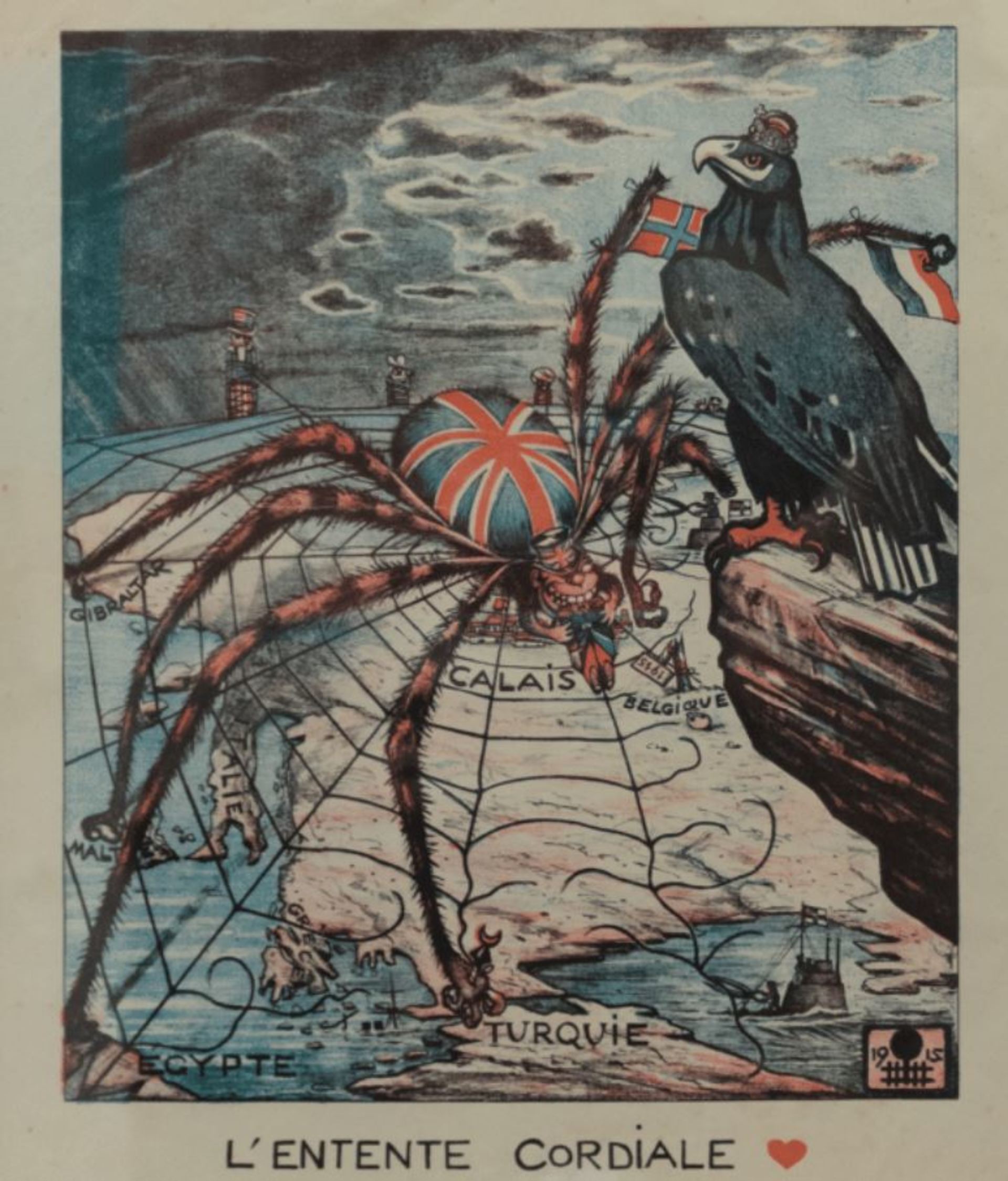European Championship 1914
Imperialism, colonialism, racism, the theory of evolution, ever-growing industrial advances, rising population in cities, the process of constructing nations which include demanding for the historical and ethnic rights, "'rattling guns'' etc. are just some of the elements which marked European society and politics before the World War I.
The theory of evolution, by the naturalist Charles Darwin (1809-1882), according to which only those plant and animal species that best adapt to environmental conditions exist in nature, had a tremendous impact on the social and religious world. However, over time, Christian theologians will reconcile evolution with the Bible, which will henceforth become primarily a work of spiritual truth, claiming that its purpose is not to serve as a textbook, but that many of its parts have an allegorical meaning and should not be taken literally. Also, Darwin's ideas were also applied to human society (so-called social Darwinism), which would become the spirit of the times before 1914, which sought to clarify social inequalities, primarily among different races and then within particular races. The former "chosen by God" in the 19th century. has been replaced by the selection of the fittest. The belief was that humanity was divided into superior and inferior races, and at that time the political and economic dominance of Western European imperialists over technically less powerful nations was clearly expressed. The promotion of such a racial idea dampened the notion of class, and the obsession with race was linked to the loss of Bible support in a world that has become incomprehensible to many. At the beginning of the century, almost none (of whites) in the West suspected that whites were superior to blacks. Racism served as an ideological justification for the development of imperialism and related colonialism and domination over other peoples - Indians, Africans, Asians, which was held in the natural right of the superior white race.
The process of expanding empires and creating colonies will accelerate in the second half of the 19th century. as a consequence of the evolution of nationalism and capitalism. The companies took control of raw materials and cheap labor, which in turn reduced imperialist competition, and in the protection and promotion of their interests, they had the support of the authorities of their "home countries", which provided them with financial, diplomatic and military power. Thus, big business began to play a more significant and direct role in state-political affairs. The foreign policy of the European powers has been at the service of industrial expansion and international trade in industrial products, which will result in numerous international crises and conflicts. The extreme exploitation of slave labor in the colonies provided many raw materials, super-profits and fresh capital vital to the industrialization and prosperity of most Western European countries. The main goal of every European imperialist state was to prevent, at almost all costs, a rival force in gaining benefits that could then be used in other parts of the world. It is precisely for the sake of domination in Europe and for domination of the Asian and African territories that the First World War (1914-18) will break out between Great Britain, France, the Russian Empire and Serbia against Germany, Austria-Hungary, Italy, Bulgaria and the Ottoman Empire on the other. War operations outside Europe were not of particular importance except in the Middle East, but naval warfare became global again. Also, overseas troops were often, for the first time, sent to war outside their own regions. Canadians fought in France, Australians and New Zealanders in the Mediterranean, Americans in Europe, Indians sent to Europe and the Middle East, Africans fought in the French army in Europe, etc.

Sources
- Georges BENSOUSSAN, Europska strast za genocidom : povijest genocidnih ideja i djela, Zagreb, 2010.
- Niall FERGUSON, Civilizacija: Zapad i ostali, Zagreb, 2012.
- Grupa autora, Povijest: Kolonijalna carstva i imperijalizam (1871. - 1914.) , knjiga XV., Zagreb 2008.
- Eric J. HOBSBAWM, Doba ekstrema : kratko dvadeseto stoljeće 1914.-1991, Zagreb, 2009.
- Vjeran KATUNARIĆ, Sporna zajednica : novije teorije o naciji i nacionalizmu, Zagreb 2003.
- Ivica KOSTIĆ, ''Realni kapitalizam i sunovrat društva' ',http://www.advance.hr/vijesti/realni-kapitalizam-i-sunovrat-drustva/
- Marvin PERRY, '' Darvinizam-Rasizam-Antisemitizam'', https://teorijamodernosti2012.wordpress.com/2012/12/08/49/
- Sources for map
- http://hillfighter.deviantart.com/art/Europe-1914-191590480
- http://geacron.com/home-en/?&sid=GeaCron270726
- https://en.wikipedia.org/wiki/Greek_War_of_Independence
- http://mapsontheweb.zoom-maps.com/post/114584426785/map-of-russian-holdings-showing-which-territory
- Other photography: https://www.researchgate.net/figure/LEntente-Cordiale-1915-C-British-Library-Photo-by-Jon-Ellis_fig3_314273040
